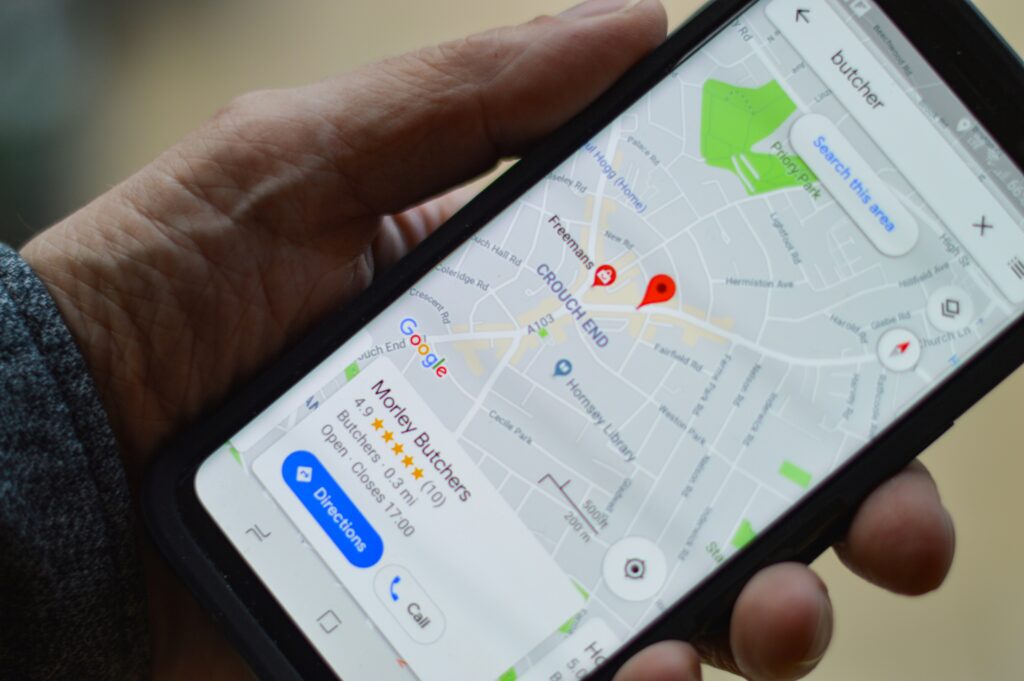In today’s competitive digital landscape, small businesses must leverage SEO (Search Engine Optimization) to attract more organic traffic, generate leads, and increase sales. As search engines evolve, so do the strategies required to stay ahead. In 2025, these are the best SEO strategies for small business owners should implement to maximize their online presence.

1. Focus on User Experience (UX) & Core Web Vitals
Google prioritizes websites that provide an excellent user experience. The best SEO strategies for small businesses must recognize that UX is no longer just about aesthetics—it directly impacts search rankings and conversion rates. A seamless, enjoyable browsing experience keeps users engaged and signals to search engines that your site provides value.
Key aspects of UX optimization:
- Page speed: Google favors sites that load within 2.5 seconds. Slow pages lead to higher bounce rates, reducing rankings and conversions.
- Mobile responsiveness: More than 60% of searches occur on mobile devices. Ensure your site is fully responsive, adjusting seamlessly to different screen sizes.
- Navigation clarity: A well-structured website with intuitive menus enhances user engagement and encourages deeper exploration.
- Content readability: Break up text with subheadings, bullet points, and images to improve skimmability and retention.
- Security (HTTPS): Secure sites (SSL certificates) rank better and build trust with visitors.
Actionable Tip:
Use Google’s PageSpeed Insights and Lighthouse to analyze your site’s Core Web Vitals. The best SEO strategies for small businesses optimize images, enable browser caching, and use a content delivery network (CDN) to improve performance.
2. Optimize for Voice Search
Voice search is rapidly changing SEO, with smart assistants like Alexa, Siri, and Google Assistant shaping the way people search. Unlike traditional typed searches, voice queries tend to be longer, more conversational, and question-based. One of the best SEO strategies for small business that is lesser-known and still up and coming is voice search optimization.
How to optimize for voice search:
- Use natural, conversational language in your content.
- Answer direct questions concisely—many voice queries start with “who,” “what,” “where,” “when,” “why,” and “how.”
- Implement structured data markup to make it easier for search engines to understand your content.
- Create an FAQ page with short, clear answers to common queries.
- Target long-tail keywords that align with spoken language patterns.
Actionable Tip:
The best SEO strategies for small businesses often try to optimize for featured snippets, as Google often pulls voice search answers from these.

3. Local SEO for Better Visibility
If you operate a local business, local SEO is essential for driving foot traffic and increasing online visibility. With “near me” searches growing, optimizing for local intent is crucial. The best SEO strategies for small businesses use local SEO and their Google Business Profile to drive traffic, boost visibility and maintain engagement.
How to improve local SEO:
- Claim and verify your Google Business Profile. Fill out all details, including business hours, photos, and services.
- Encourage customer reviews. More positive reviews boost credibility and local rankings.
- Optimize website content for local keywords. Mention your city, neighborhood, or service areas naturally.
- Use local citations. List your business on reputable directories like Yelp, Yellow Pages, and BBB.
- Create location-specific landing pages. These pages should have unique, valuable content tailored to local customers.
Actionable Tip:
The best SEO strategies for small businesses include regularly update your Google Business Profile with posts, offers, and customer interactions to maintain engagement. And the best thing is – it’s completely free!
4. AI-Powered Content & EEAT Compliance
Google’s algorithms increasingly prioritize Experience, Expertise, Authoritativeness, and Trustworthiness (EEAT) when ranking content. While AI-generated content is on the rise, human oversight and credibility remain essential.
How to improve EEAT:
- Showcase expert authorship. Highlight credentials, experience, and relevant expertise.
- Fact-check and cite reputable sources. Providing well-researched content improves trustworthiness.
- Keep content fresh. Regularly update outdated posts to maintain accuracy.
- Use AI tools for SEO optimization, but ensure human review for authenticity and personalization.
Actionable Tip:
The best SEO strategies for small businesses leverage AI for content ideation and keyword research but make sure a human writer refines and enhances the final piece.
5. Video & Visual SEO
With YouTube being the second-largest search engine, video content is a powerful way to engage audiences and boost rankings. Short-form video is a must in 2025 and is a major part of the best SEO strategies for small businesses.
How to optimize videos for SEO:
- Use keyword-rich titles and descriptions.
- Include transcripts and captions to improve accessibility and indexability.
- Host videos on your website in addition to YouTube to increase dwell time.
- Implement video schema markup to improve discoverability in search results.
Actionable Tip:
Create engaging, short-form video content (e.g., Reels, Shorts, TikToks) to capture attention and drive traffic.
6. High-Quality Link Building
Backlinks remain one of the strongest ranking factors in 2025. However, quality trumps quantity—links from authoritative sites carry more weight than dozens of low-quality links. The best SEO strategies for small businesses should include link-building, but be wary of purchasing links from providers as they can be flagged as ‘spammy’.
Effective link-building strategies:
- Guest posting on industry-relevant blogs.
- Creating shareable infographics and reports.
- Engaging in digital PR and influencer outreach.
- Getting featured in news publications through HARO (Help a Reporter Out).
- Building relationships with complementary businesses for mutual backlinks.
Actionable Tip:
Monitor your backlinks using Ahrefs or SEMrush and disavow toxic links that harm your rankings.
7. AI & Automation in SEO
What would this guide be without the inclusion of AI tools?
In an age of rapid AI growth, the best SEO strategies for small businesses incorporated AI-driven tools to streamline SEO tasks, helping small businesses compete with larger brands.
How AI enhances SEO:
- Automated keyword research to identify profitable opportunities.
- AI-driven content optimization with tools like Surfer SEO and Clearscope.
- Predictive analytics to anticipate trends and search behaviors.
- Automated chatbots to improve user engagement and reduce bounce rates.
Actionable Tip:
Use AI to supplement, not replace, human-driven SEO efforts.
8. Mobile-First Indexing
Google’s mobile-first indexing means your mobile site determines rankings.
How to optimize for mobile:
- Use responsive design.
- Optimize images and minimize code for fast loading.
- Ensure easy-to-click buttons and links.
- Avoid intrusive interstitials that disrupt the user experience.
Actionable Tip:
Test your site’s mobile-friendliness with Google’s Mobile-Friendly Test Tool.
9. Consistent Content Publishing & Blogging
Google favors fresh, high-quality content updated consistently. Regularly publishing blog posts helps improve search visibility, establish authority, and engage potential customers.
Why Consistency Matters:
- Builds domain authority: Websites with regularly updated content are seen as more authoritative by search engines.
- Increases keyword opportunities: More content means more chances to rank for various search terms.
- Encourages returning visitors: Consistently providing valuable insights keeps your audience engaged and returning for more.
- Boosts internal linking opportunities: Regular blog posts create chances to interlink relevant content, enhancing SEO structure.
Best Practices for Blogging:
- Create an SEO content calendar to plan and schedule posts in advance.
- Write in-depth, value-driven articles that answer user intent.
- Incorporate multimedia (images, videos, infographics) to enhance engagement.
- Repurpose content across different platforms (social media, email newsletters) for maximum exposure.
Actionable Tip:
Develop an SEO content calendar and publish optimized blog posts at least twice a month. Prioritize evergreen topics and trending industry insights.

10. Leveraging Social Media for SEO
Social media plays a crucial role in SEO by amplifying content reach, increasing engagement, and driving traffic to your website. Implementing the best SEO strategies for small businesses should include a strong social media component to maximize visibilit
How Social Media Helps SEO:
- Boosts content visibility: The more your content is shared, the higher the chances of earning backlinks from authoritative sites.
- Increases brand recognition: A strong social presence improves trust and credibility, leading to higher click-through rates.
- Enhances local SEO: Social media profiles often rank on Google, providing additional visibility for your brand.
- Encourages user engagement: Comments, likes, and shares indicate valuable content, which can drive more organic traffic.
Best Practices for Social Media & SEO:
- Optimize social profiles with relevant keywords, links to your website, and a consistent brand voice.
- Share blog content strategically across social platforms, tailoring messaging for each audience.
- Encourage social sharing by adding share buttons to blog posts and product pages.
- Engage with followers by responding to comments, participating in discussions, and using relevant hashtags.
- Leverage influencer collaborations to expand reach and attract more traffic.
Actionable Tip:
Promote blog posts on Facebook, LinkedIn, and Twitter to drive engagement. Use UTM parameters to track which social media posts drive the most traffic and conversions. The best SEO strategies for small businesses often use platforms like Google Analytics and Facebook Pixel to help measure impact and refine strategies.
Final Thoughts
The best SEO strategies for small businesses in 2025 requires a multi-faceted approach. By implementing these best SEO strategies for small businesses, you can increase visibility, attract traffic, and drive conversions.


